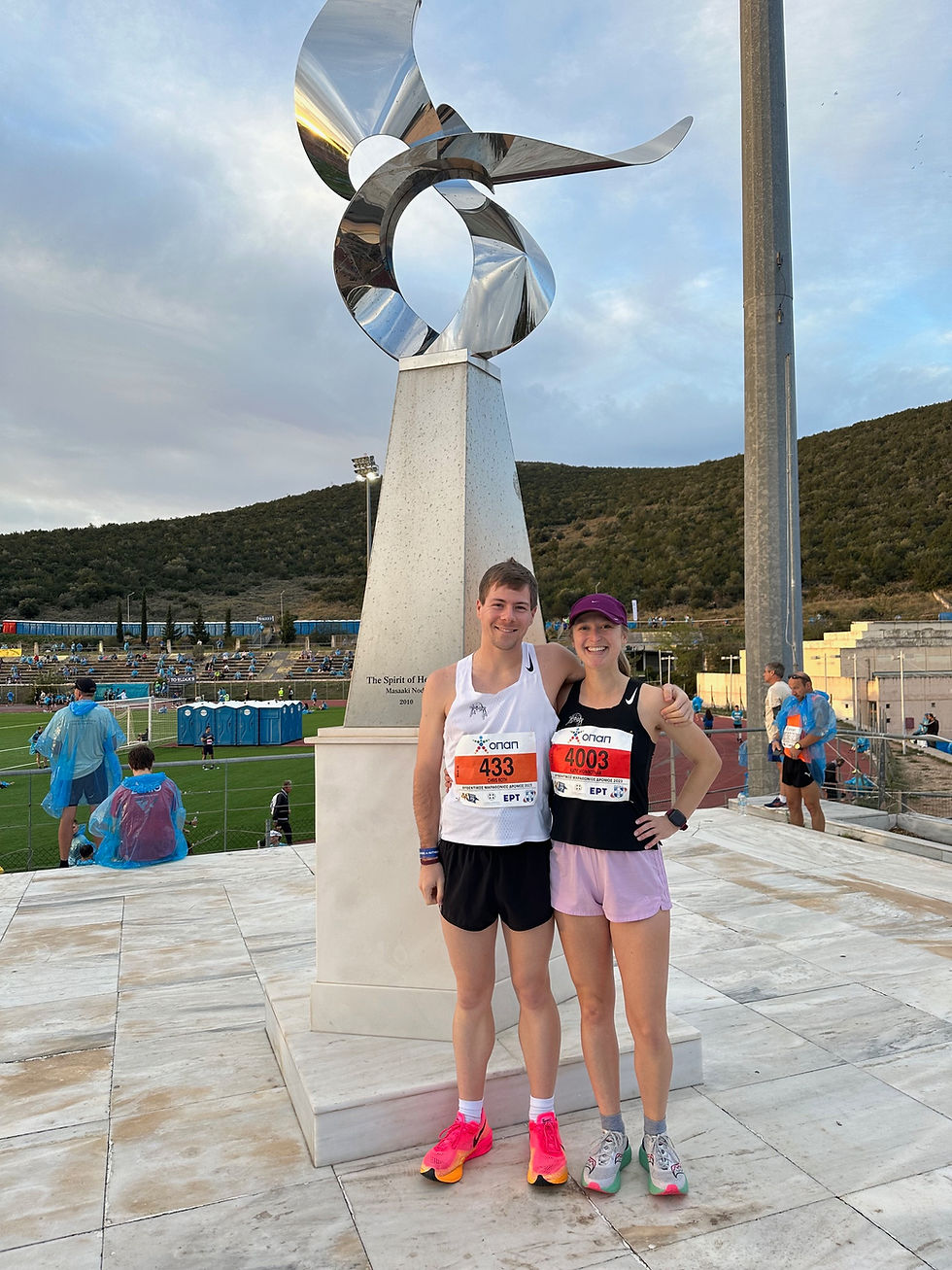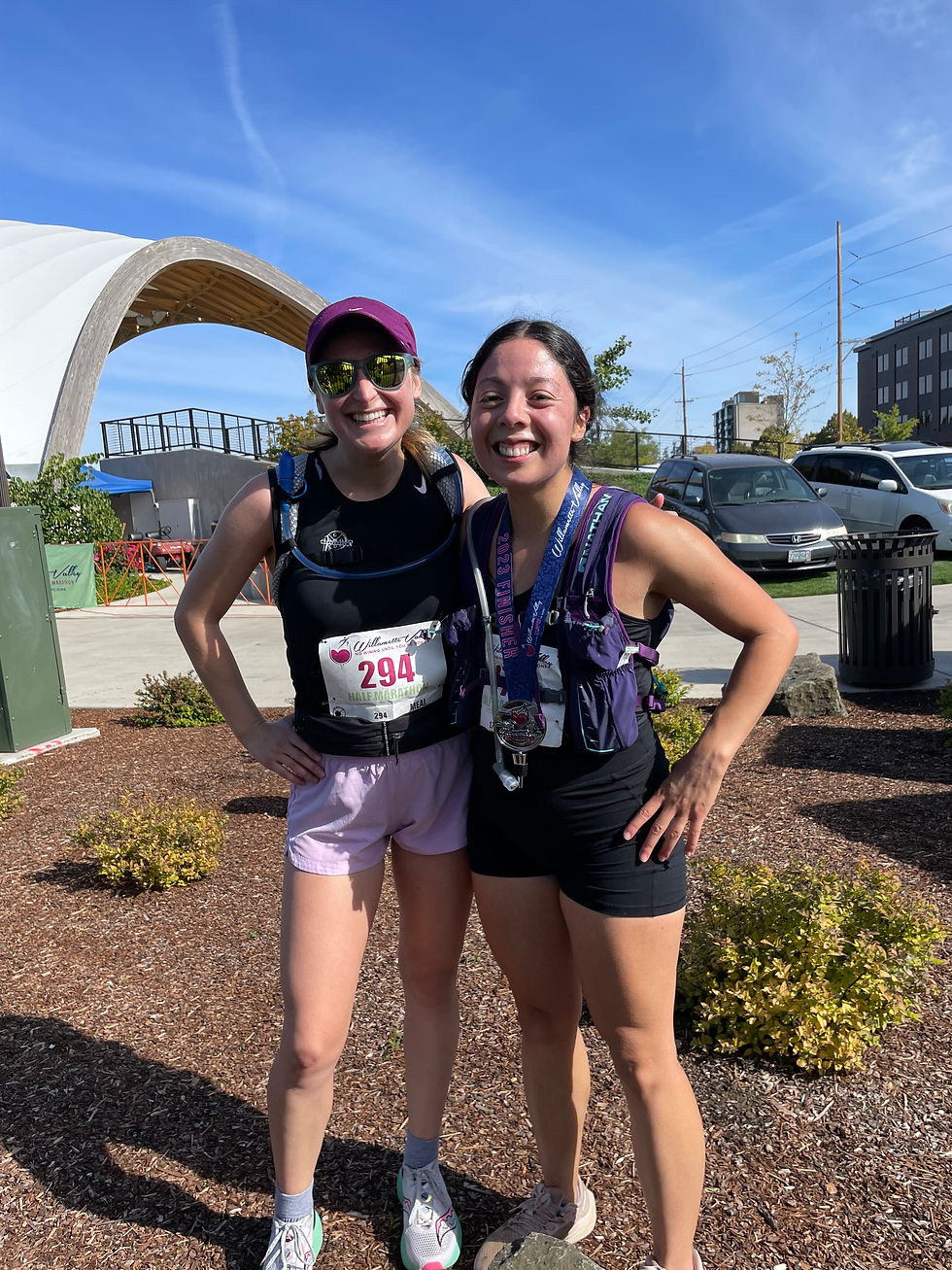Week 1: The Road to Athens
- katiehiginbotham
- Jul 28, 2023
- 3 min read
“The road to Athens might be ugly, but we’ll get there.”
These words, spoken by my boyfriend, Chris on our first marathon training run together, swirl around my mind all week. This is the first week of our 16-week marathon training block.

It’s not that we’re pessimists. (Okay, I’m a little bit of a pessimist). It’s rather that this year, even prior to our decision to run the Athens Marathon, we have both encountered numerous setbacks to our training. We both know the all-too-familiar feeling of being right on the brink of fitness only to sprain an ankle, tweak a foot muscle, or for the chronic knee, hip, or whatever pain to creep back in. We’ve been runners for most of our lives. We ran and raced together for the same small college. By now, we know that there is no such thing as a guaranteed injury-free season in a sport as abusive to your body as ours. It’s not if, but when. And then, it’s “how are you going to work through it?” And now, as we embark on our first marathon journey, neither of us are starting with a completely clean slate. In other words, I’ve got nagging chronic knee pain and Chris is coming fresh off a foot injury. It’s a tough place to start something so big. Kind of like deciding you’re going to climb Everest with an extra 50 lb dumbbell strapped to your chest…
Marathons are hard enough to train for when you’re completely healthy. Or so I’ve heard. I’ve heard about the constant fatigue, the never-ending supply of calories you need to consume for survival, the grueling 18-20 mile long run. That alone scares me, as the furthest I’ve previously run is a Half Marathon at a whopping 13.1. The question then, among all of these “firsts,” becomes how am I going to do this? How do I stay positive, motivated, and as healthy as possible in this gargantuan endeavor?

Being a teacher, I always turn to education first. With so much information out there it can be hard to know what to trust. We've been scouring numerous YouTube channels, podcasts and websites trying to educate ourselves on marathon training practices for months now, hoping to glean any nuggets of wisdom wherever possible. I even reached out to the head coach/founder of Strength Running, Jason Fitzgerald, for advice on how to train for a marathon for the injury-prone while staying relatively low mileage. I didn’t expect a response (because, you know, who am I?) but I ended up getting one. Jason’s response was kind and encouraging. He told me that with a lot of cross training and strength work, I could finish a marathon. Key word “finish.” He added the caveat that I may have to release my ultimate goal of a Boston Qualifier (3 hours, 30 minutes for women my age) because it is quite difficult. If you know me at all, you know that this statement from a prominent coach is only going to make me double down on that goal. Even in high school, I loved proving coaches wrong. In college, I thrived on it. If I surprised my coaches with some aspect of my performance, that was more satisfying to me than winning the race.
But I’m not doing this marathon for a coach or in accordance with anyone’s expectations. I’m doing it to prove to myself that I can. And for the once in a lifetime chance to run through the Panathenaic Stadium at the end. And for the gyros that I will stuff my face with afterwards.
The ability to run is a gift. It is a gift that I have taken for granted many times. All time goals aside, I’m eager to see what the gift of 26.2 has to offer me. Even if the road is long and its wrapping is held together by blood, sweat and moleskin.



Comments